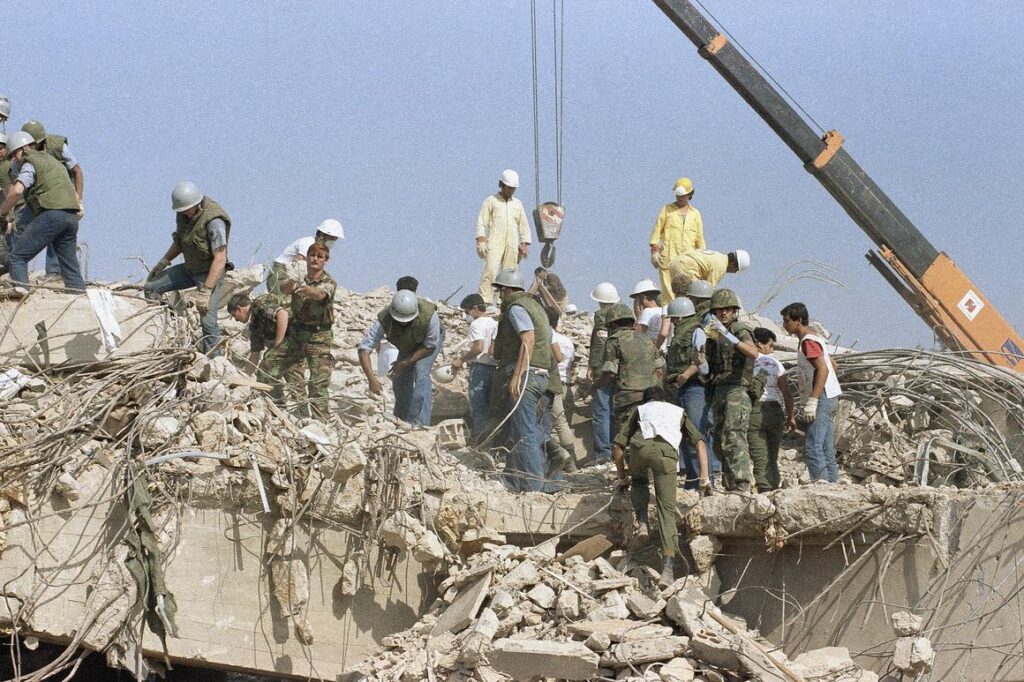In the early hours of October 23, 1983, a devastating explosion ripped through the Marine Corps barracks in Beirut, forever altering the course of history. The aftermath of this tragic event would not only shape the future of American military involvement in the Middle East, but also have far-reaching implications for political and security strategies around the world. Join us as we dive into the harrowing events of that fateful day and explore how the Beirut bombing of a Marine Corps barracks changed everything.
Impact on U.S. Foreign Policy
The Beirut bombing of a Marine Corps barracks in 1983 had a profound , reshaping the way the country approached diplomacy and military interventions in the Middle East. The devastating attack, which killed 241 U.S. service members, was a wake-up call for the American government, prompting a reevaluation of its presence in the region.
The aftermath of the bombing led to several key changes in U.S. foreign policy:
- Increased focus on counterterrorism: The attack highlighted the growing threat of terrorism in the region and pushed the U.S. to prioritize counterterrorism efforts in its foreign policy agenda.
- Shift towards multilateralism: The bombing demonstrated the limitations of unilateral actions and prompted the U.S. to seek greater cooperation with international allies in addressing security challenges.
Reassessing Military Security Measures
The devastating Beirut bombing of a Marine Corps barracks in 1983 sent shockwaves through the military world, prompting a widespread reassessment of security measures. The attack, carried out by a suicide truck bomber, killed 241 American service members and marked a turning point in how the military approached security at its installations.
Following the tragic event, military leaders realized the need for enhanced security protocols to protect personnel and assets from similar threats. This led to a shift in mindset towards a more proactive and comprehensive approach to military security. Key changes included:
- Increased perimeter security measures
- Improved intelligence gathering and analysis
- Implementation of stricter access control procedures
- Enhanced training for personnel on threat recognition and response
Long-Term Effects on Middle East Relations
Following the devastating Beirut bombing of a Marine Corps barracks in 1983, the were profound and far-reaching. The attack, which resulted in the deaths of 241 American servicemen, marked a turning point in how the United States engaged with the region.
The incident led to a reevaluation of U.S. military involvement in Lebanon and sparked increased tensions between the U.S. and various Middle Eastern factions. It also highlighted the complex and volatile nature of the region, setting the stage for future conflicts and shaping diplomatic relations for years to come.
Lessons Learned and Moving Forward
Reflecting on the tragic events of the Beirut bombing of a Marine Corps barracks, there are a number of key lessons that have been learned from this devastating incident. One of the most important takeaways is the critical need for improved security measures and protocols at military installations around the world. This includes regular security assessments, enhanced training for personnel, and stronger coordination between different branches of the military.
Another crucial lesson learned from the Beirut bombing is the importance of international cooperation in combating terrorism. This event highlighted the need for increased cooperation between countries to prevent future attacks and hold accountable those responsible for such heinous acts. Moving forward, it is essential for nations to work together in sharing intelligence, resources, and strategies to counter the threat of terrorism on a global scale.
To Conclude
As we reflect on the tragic events of the Beirut bombing that forever altered the course of history, it becomes clear that the ramifications of that fateful day continue to ripple through our world today. The loss of so many lives serves as a stark reminder of the cost of conflict and the sacrifices made by those who serve their country. May we never forget the bravery and dedication of the Marines who made the ultimate sacrifice that day, and may their memory inspire us to strive for a more peaceful and secure future.


